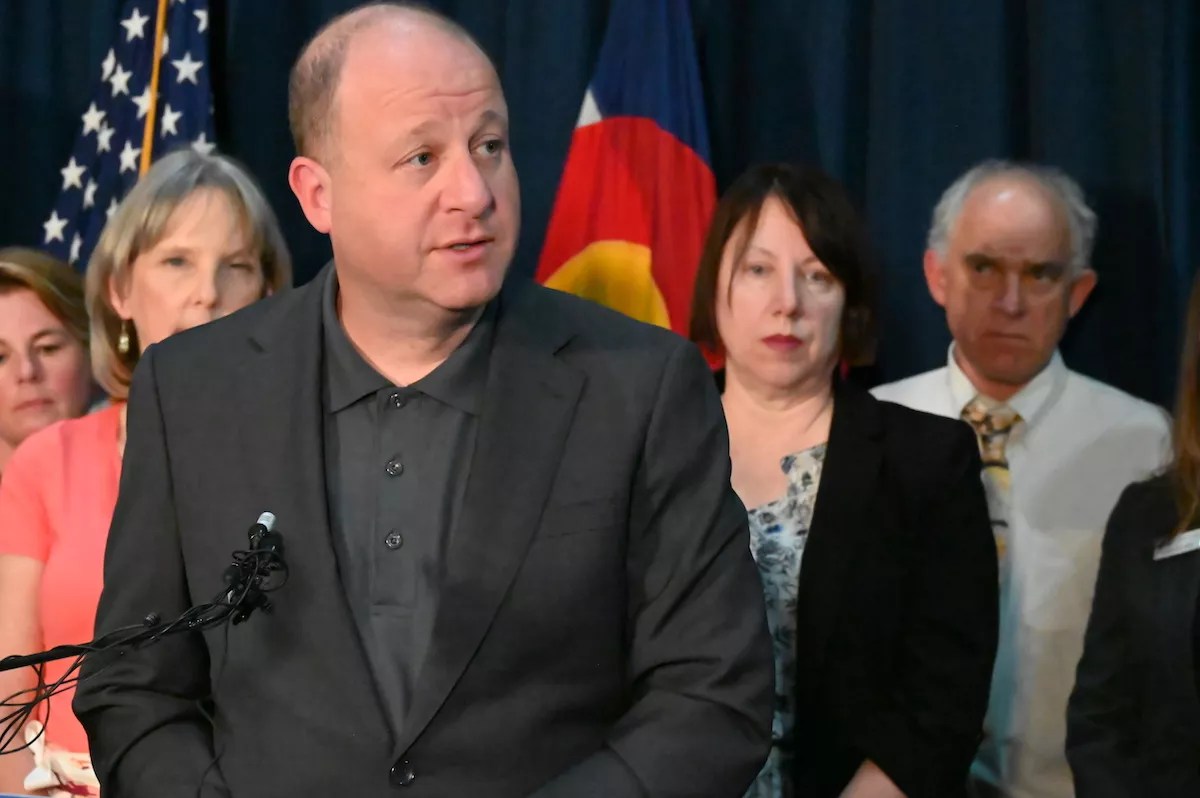
Bennito L. Kelty

Audio By Carbonatix
Governor Jared Polis promises to back Colorado municipalities in their efforts to create more affordable housing, signing an executive order on Monday, August 21, to deploy multiple state agencies to simplify the process and help acquire more funding for projects.
“We need to make Colorado an affordable place to live,” Polis told reporters at a press conference. “Greatest state in the country – that’s the good news. The bad news is the secret’s gotten out, and it’s driven home prices up.”
Polis’s executive order will ultimately speed up the process of approving and funding housing projects, with the goal of seeing more rental units and first-time home buyers throughout the state. The governor views it as a way to ease a relentless housing crisis long-term and a model for local governments to improve their own affordable-housing programs.
“This executive order is doing everything that the state can do with existing authority to turn around more housing quicker for addressing the housing crisis that so many of our residents face,” Polis said. “Getting money out the door significantly quicker – in housing, time is money. It simply adds to the cost when there are delays.”
The order directs state agencies that deal with housing, public health, natural resources, labor, transportation, the economy and other areas “adjacent to housing” to identify programs that local governments rely on to develop housing so those agencies can then “make their programs and timelines more efficient,” said the governor.
“We also want to make sure that in an inter-jurisdictional way, we look at transit and traffic and water utilization and open space as important values that inform the use of state resources, which is part of the overall housing solution,” Polis explained while flanked by agency heads and elected officials from across the state.
The Colorado Division of Housing, in particular, will have to halve the amount of time it takes it to deliver funding for grants and loans by the end of the year. Currently, its turnaround time is 240 days; that will have to be 120 days by January 1 and ninety days by July 1. DOH is a division of the Department of Local Affairs.
Polis is hoping that the executive order not only gives local governments ideas for how they can speed up their own programs, but also how to “lead by example,” he said.
“If we’re asking local governments to turn out applications quicker and build more housing, we should make sure that the state is in fact leading and meets that 90-day turnaround that we support,” Polis told reporters. “And we also want others to move faster too.”
First-time home buyers have had an especially tough time in Colorado, according to Polis, as the state seems depleted of homes selling at a reasonable rate for working families. “What often is not allowed to be built and doesn’t exist in our state is housing that is on the more affordable end – let’s say $200,000 to $300,000, rather than $500,000, $600,000,” he explained. “So there’s a need for housing across the board, but there’s a particular need for home ownership, entry-level, as well of course more and more units that people can afford to rent.”
Aurora, which has a reputation as a Denver suburb or bedroom city, was well represented at Monday’s press conference, with District 41 Representative Iman Jodeh and City Council member Juan Marcano in attendance.
“It’s important the state demonstrate good faith and a willingness to help localities like Aurora catch up with the housing crisis and get ahead of long-term challenges we have in the region,” Marcano said, noting how he currently rents but has been trying to find a home to buy for years.
“As it is, we’re priced out,” Marcamo added. “I don’t think there’s a single home we can afford in Aurora. About 40 percent of Aurorans rents, and I know that share is growing, and it’s something that’s a huge challenge for us. We need all the help we can get.”
The executive order resembles the aims of SB23-213, an attempted reform of state laws on land use that would have allowed the state to override municipal zoning and land use codes to build high-density and multi-family housing. Jodeh and District 2 Representative Steve Woodrow sponsored the “More Housing Now” bill, as it was called, during the most recent legislative session. But it failed without a vote after being changed by Senate Majority Leader Dominick Moreno.
Asked if this executive order is a continuation of that land use reform, Polis said: “Certainly the efforts around land use reform are continuing.” But the executive order “really addresses the state role,” whereas land use reform would have had a heavier hand in how local governments work.
Jodeh tells Westword that even though “our first step was taken in legislature” towards land use reform, she had no part in the executive order. She sees it more as an opportunity to create bipartisan support around a solution to the state’s housing problems.
“The executive order today was an opportunity for us to come together and take a step where we all recognize something needs to happen,” Jodeh says. “We all agree that was a good idea of doing that. We have an opportunity to have a bipartisan approach to sustainable planning that is a holistic approach around transportation, around our climate and water and growth.”